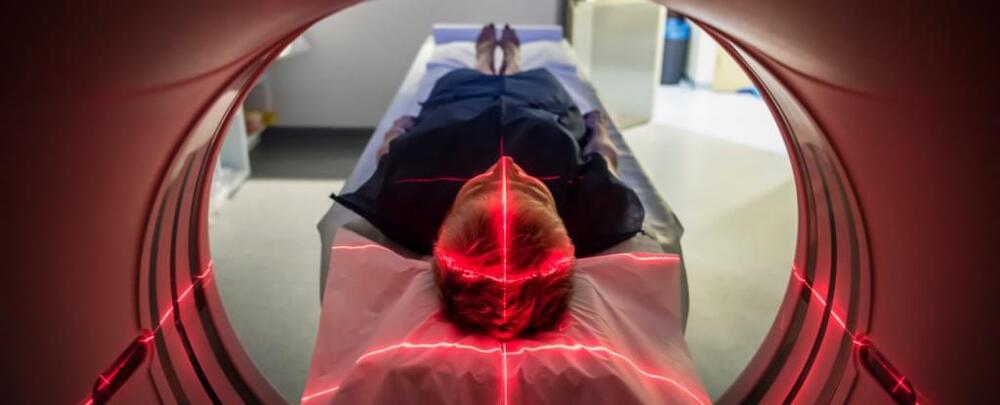Rapid advances in applying artificial intelligence to simulations in physics and chemistry have some people questioning whether we will even need quantum computers at all.


Get a Wonderful Person Tee: https://teespring.com/stores/whatdamath.
More cool designs are on Amazon: https://amzn.to/3QFIrFX
Alternatively, PayPal donations can be sent here: http://paypal.me/whatdamath.
Hello and welcome! My name is Anton and in this video, we will talk about recent discoveries about quantum computers.
Links:
https://journals.aps.org/prapplied/abstract/10.1103/PhysRevApplied.22.034003
http://cjc.ict.ac.cn/online/onlinepaper/wc-202458160402.pdf.
https://arxiv.org/pdf/2307.03236
https://www.science.org/doi/10.1126/sciadv.adn8907
https://qiskit.github.io/qiskit-aer/stubs/qiskit_aer.QasmSimulator.html.
https://arxiv.org/abs/2302.00936
Previous videos:
https://youtu.be/Jl7RLrA69pg.
https://youtu.be/dPqNZ4aya8s.
#quantum #quantumcomputing #quantumcomputer.
0:00 Quantum Doom.
2:15 Recent quantum claims by Google and IBM
3:30 Why it’s so hard and what issues have to be solved.
4:50 No real world application?
6:30 Potential use: quantum internet.
8:00 Optical quantum computer that does something different.
9:50 Cracking encryption.
11:15 Conclusions and what’s next?
Support this channel on Patreon to help me make this a full time job:
https://www.patreon.com/whatdamath.
Bitcoin/Ethereum to spare? Donate them here to help this channel grow!
bc1qnkl3nk0zt7w0xzrgur9pnkcduj7a3xxllcn7d4
or ETH: 0x60f088B10b03115405d313f964BeA93eF0Bd3DbF
Space Engine is available for free here: http://spaceengine.org.

Researchers at Paul Scherrer Institute (PSI), using muon spin rotation at the Swiss Muon Source (SmS), have discovered that a quantum phenomenon called time-reversal symmetry breaking takes place at the surface of the Kagome superconductor RbV₃Sb₅, occurring at temperatures up to 175 K.
This sets a new record for the temperature at which time-reversal symmetry breaking is observed among Kagome systems.

Deep sleep could be key to forestalling slow declines in brain health that may one day lead to Alzheimer’s disease, the most common form of dementia.
In their 2023 study of 62 older, cognitively healthy adults, researchers from the University of California (UC) Berkeley, Stanford University, and UC Irvine in the US found individuals with brain changes associated with Alzheimer’s performed better on memory function tests as they got more deep sleep.
This was irrespective of education and physical activity, two factors along with social connection known to contribute to cognitive resilience in older age.
“The first involved integrating the hole-selective materials and the perovskite layers, to simplify the manufacturing process. The second involved replacing traditional organic materials, such as fullerene and bathocuproine, with tin oxide, an inorganic electron transport layer, in a process known as the atomic layer deposition method,” per PV’s description.
Labspeak aside, the big takeaway is that the changes resulted in a 25% efficiency, meaning the cells can turn a quarter of the sunlight hitting them into energy. What’s more, they maintained 95% of their efficiency after 2,000 hours of operation, per the report.
“The device structure reported in this study represents the most simplified architecture in the current field of perovskite solar cells, offering significant advantages for industrialization,” study co-author Gao Danpeng said in the story.

Part of a groundbreaking effort to harness artificial intelligence (AI) to unlock the mysteries of the cosmos, the U.S. Department of Energy’s (DOE) Argonne National Laboratory is a key collaborator in the newly launched NSF-Simons AI Institute for the Sky (SkAI, pronounced “sky”), led by Northwestern University.
Jointly funded by a $20 million grant from the U.S. National Science Foundation (NSF) and the Simons Foundation, SkAI aims to revolutionize how researchers explore the universe by developing innovative AI technologies capable of handling the vast data generated by astronomical surveys.

As detailed in a new study published in the journal Astronomy & and Astrophysics, the tunnel exists as part of an enormous structure of hot gas with a radius of hundreds of light years that surrounds our solar system known as the Local Hot Bubble. What’s more, the findings suggest that it could connect with a nearby and even larger bubble.
Using extensive data collected by the eROSITA telescope, the first x-ray observatory fully outside of the Earth’s atmosphere, the researchers generated a 3D model of the entire LHB, confirming some features that astronomers had predicted, but also uncovering entirely new ones.
“What we didn’t know was the existence of an interstellar tunnel towards Centaurus, which carves a gap in the cooler interstellar medium,” said study coauthor Michael Freyberg, an astronomer at Germany’s Max Planck Institute for Extraterrestrial Physics, in a statement. “This region stands out in stark relief thanks to the much-improved sensitivity of eROSITA and a vastly different surveying strategy compared to ROSAT,” the space telescope’s predecessor.

The U.S. Department of Energy (DOE) has awarded DOE’s Argonne National Laboratory funding as part of its Artificial Intelligence (AI) for Scientific Research program.
Supported by DOE funding, two projects will drive innovations by improving how data is processed and protected, leading to faster and more secure discoveries.

In this research, scientists have made an exciting discovery involving “time crystals,” a special kind of phase of matter that behaves in unexpected ways when driven by periodic forces.
In a new study published in Nature Communications, scientists have implemented the topologically ordered time crystal on a quantum processor for the first time.